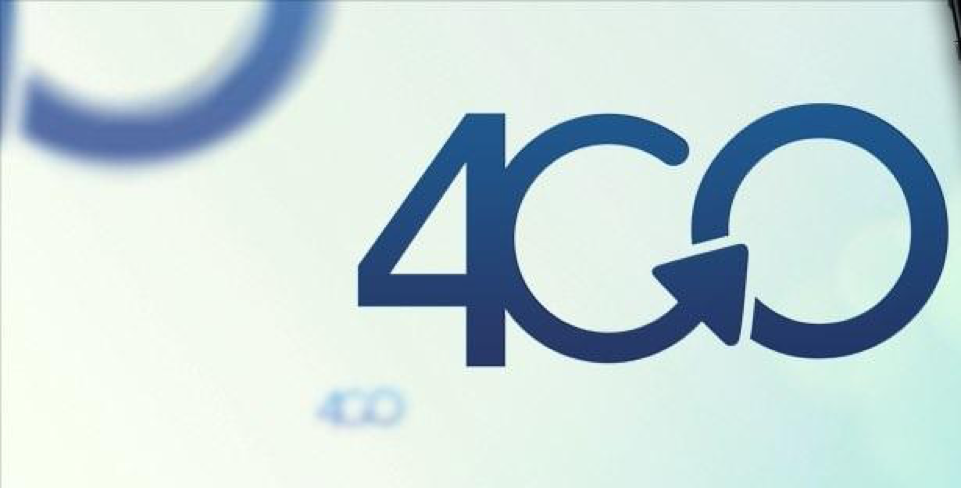4andgo appeared in 2011 when its promoters Alejandro and José Luis were working for another company in developing mobile apps and looked for a change. At that time they were only two; today, they are around ten, have diverse clients –from Prisa to Infojobs or Nokia–, and have been winners of the first edition of BBVA InnovaChallenge in the category of business solutions.
Their app targets future entrepreneurs who want to know beforehand if, behind an idea, there is an opportunity for success. Theirs is undeniable. The co-founders of this project have spoken with BBVA on APIs, development, and the best kept secrets of the mobile sector.
You define yourselves as ‘mobility experts’. At this point, it seems obvious that any company must turn to mobile devices and applications but, are there still businesses that are not aware of the importance of this step?
We think there are people that have not taken that step yet, that there are still companies that have not opted for mobility in the way they should. In the case of the media, they are starting to open to digital media and mobility now, and this is what is really going to bring about profit in the short term. There are also companies that take this step but not 100%. Yes they are in mobility, but not as they should. Our differential value is to make them take the correct direction, that they provide the mobile product they have to, and not to be in mobility just to be.
Some say that APIs are what move the digital economy, and companies that do not have them will be left behind. Why should every company have its own API?
Well, any company who offers a service to others. In the end, what your API allows is that more people use your service. Frequently, when you develop something, you are reluctant to offering it for others to use and exploit it. However, what has been proven is that you will benefit in an unimaginable way when more people use your development.
For example, in the case of BBVA, when you open their database and generate their API, what it allows is that the community of developers can create a set of tools that will benefit the community and them (the bank), and where users are still the final clients. We think it is something beneficial for everyone, and in the case of BBVA, we have been able to observe this directly.

Could we say that it is the biggest marketing strategy for companies? If so, why?
Well, that also depends on the products that you create through those APIs. In the case of BBVA yes, it is a good marketing tool because opening data in a bank is something that surprises people a lot, and that used to be considered very very closed. It also depends on the products that you use these APIs for. This is what will give them greater visibility and power.
However, certain companies prefer to restrict the use of these API in order to give access to only some actors. Is this a correct decision?
That depends on the company. Some can have an API for any developer to carry out a tool, other prefer to restrict the access due to many factors. One of these factors can be data privacy or the extent to which this service is critical for the company itself. We prefer the first case, provided that the service does not compromise the company. You will acquire global presence in the development community and ultimately generate very good ideas. You have to be there and get people interested in your service and generating those ideas. If you limit this, it will give you work as you will have to be monitoring.
The model of limiting an API is usually adopted when it is created, when the service is launched to the market and you do not know very well how to exploit the tool. Some companies opt for limiting the access to data first, and seeing to what extent the platform has potential. However, in general the trend is for the API to end up being open.

You have worked in developing applications for a large number of clients. Is it a mechanical process or do you have to adapt to each ones philosophy?
Well, there are similar applications. You can always develop them in a similar way, but we frequently come across very different applications that require a very personalised development. In fact, we look for that. We look for specific functionalities, more or less special, that will allow us to research a particular field. There are also some applications that are merely lists of details, which you can consider the most basic. In these cases, we can apply other knowledge that we have from other project. In this way, we gain speed, but we always try to somehow differentiate, either in terms of design or user experience, what we can apply to them.
As technology moves forward, it offers you new functionalities that you always try to apply. This makes the evolution of applications constant, and makes you progress with them. Like this, every application always has something different to it.
What are the challenges to create other applications by using the API of a bank such as BBVA? What should be taken into account?
Something that we quite enjoy is to try to generate applications for a bank and that it doesn’t look like they were developed by a bank. We try to add certain freshness, a free and easy concept that you use without thinking there is a bank behind, normally related with something rather serious. BBVA’s API offers valuable information which is not sensitive for clients in any way, and that will offer them a subsequent functionality.
We start with that concept and another one that we quite like: trying to eliminate, in a more or less fun way, the regular currently from the streets to make everything digital. Bank applications are usually complex. What we frequently try to do is to simplify processes to the maximum, creating very precise applications so the user can carry out the process in the minimum number of steps possible. This is what we look for also when creating banking applications.

Some years ago you won BBVA’s first #innovachallenge thanks to the application Chances. Is it different to develop applications for a bank or for other types of companies?
It is always different, both for banks and other types of companies. You have to concentrate on the people that are going to consume your application and in the way in which they will do so. Very frequently, when we develop an application, we focus on a specific group of people and in a particular functionality to apply that layer of simplicity and easiness that enable us to generate a very positive experience for users.
In the case of the bank, it could look like you have to be much more rigid, serious, and meet a set of standards. If we face the part of banking innovation, as we have, what we are going to provide is something different. We try to go a step further in what they had already conceived as their application. It was a challenge to work with a bank API because we wanted to offer something that they had not yet come across but that they could use as their own product.
The case of our API for BBVA was something special. I do not think that many banks offer the type of information that BBVA does. For us, it was a very positive experience. In our company we greatly enjoy developing innovative ideas that can transform a little bit the concepts of application, functionality, user experience… And BBVA allowed us to do so. We are very happy and we hope to be able to continue working with them.
Follow us on @BBVAAPIMarket













